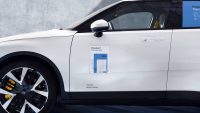Cost has been singled out as the biggest barrier to personalisation when buying cars but it’ll be solved by artificial intelligence.
That’s according to The Lead Agency chief product officer Ed Clark, who was a keynote speaker at a AI webinar.
Clark, who has pioneered automotive marketing tech for more than 15 years, said AI was helping The Lead Agency to take things to the next level by ‘opening doors to personalisation’ that had been firmly shut before.
The ideas being unlocked weren’t always new but they were simply blocked by the fear of diminishing returns.
‘You’d reach a point at which it wouldn’t be worth spending the amount of money required to generate a sufficiently detailed level of information,’ he said.
‘AI, however, does allow us to get to that granular level of segmentation and then on to personalisation.
‘For example, you can run an advert to target a 25-year-old female who is looking at a particular car, living in a particular area, and who has particular interests.
‘As you engage with her, you can capture and react to her exact requirements on a personal level.’
Clark said imagery was key when presenting cars for sale – and it was helpful if a customer could relate to a picture they were being shown in advertising and marketing material.
As an example, he showed some pictures of a Ford Kuga in a scenic European setting, which, although showing the car in its best light, didn’t necessarily reflect everyday life in the UK.
In Britain, he said, a prospective customer might be ‘sitting outside Asda in the rain’.
Clark said there were now AI tools that could generate more relevant imagery, such as the same Kuga parked outside a house in a familiar-looking UK street, or being loaded up by a young family ready for a day out.
The AI could converse with the user to collect more specific requirements and details than standard data collection techniques may capture – and that’s where the real personalisation can happen, he said.
Fellow speaker Will McMahon, head of tech and innovation at The Spark Foundry, focused on image creation and said AI gave everyone the chance to be creative.
He also touched on the concept of ‘marketing to machines’, which first emerged with the arrival of Amazon’s Alexa and similar devices.
And could Google have had its heyday?
McMahon said: ‘At the moment, Google is having a bit of a hard time because most retail searches don’t happen on Google – they start with a retailer.
‘In fact, 56% of product searches happen on retailer sites. There’s been a big divestment away from Google to the likes of Amazon.
‘But at the same time, younger generations are going to TikTok – so Google has a bit of a problem there.
‘In future, I don’t think it’s going to be quite as simple as just saying ‘‘Google it’’. I think we’re going to have a much more complicated eco-system.’
McMahon and Clark were joined on the webinar by Jason Craker, transformation director (automotive) at Changemaker and ex-chief digital information officer at Polestar, with the session hosted by automotive consultant Patrick Fuller.
Main picture credit: Dominic Lipinski/PA Wire/PA Images



































